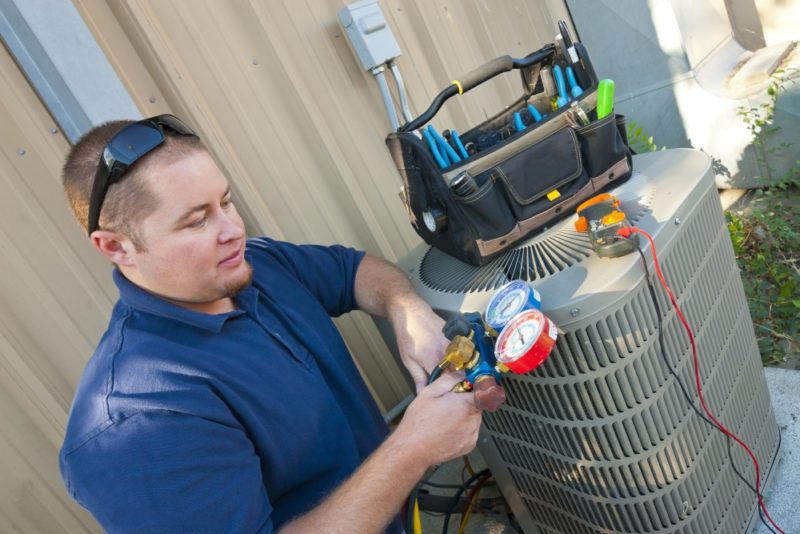Keeping your HVAC system running properly in your Gretna, Louisiana, home is essential if you want your system to last for as long as it can. While you can tackle a few minor maintenance issues on your own (such as changing the filters, changing the thermostat batteries, and clearing debris from outside units), major repairs should be left to a trusted HVAC professional. Read about six HVAC repairs that you should never attempt on your own.
Electrical Problems
Your HVAC system consists of numerous electrical components that allow your system to operate. Unfortunately, over time, these wires can fray or even fuse together, causing malfunctions. Whenever a repair involves electricity, you should call a professional. HVAC systems use a lot of power, and an accident with electricity can seriously injure you.
Problems With the Gas Line
If your furnace uses gas, then it uses lines to pull fuel into the system, where it is converted to energy. Unfortunately, these lines can develop leaks inside or outside your home and result in severe hazards or even explosions. You should never attempt to repair a gas line yourself. If you detect a leak, you should immediately shut off your gas and contact an HVAC professional to protect you and your home.
An Overheating Motor
Over time, dust and dirt can build up and coat the motor of your HVAC system. If this happens, your motor can overheat, which can trigger your system’s safety shut-off. Though repairing the motor does not involve as much risk as other kinds of repairs, you should not attempt to repair it yourself. Failing to repair it properly could cause the motor to fail and result in an even more costly expense.
Worn Out or Broken Belts
If you smell burning rubber or hear squealing noises coming from your HVAC system, it’s possible that your system’s belts have become damaged or worn out and need to be replaced. If they are not replaced, the belts can cause other parts of your system to overwork. Though this repair may seem simple, it requires extreme precision. The belts must be placed properly to run well. If they aren’t, they may slip off and damage other parts of the system.
Preventative HVAC Maintenance
Unfortunately, many homeowners think that they can easily perform preventative maintenance on their own. Though preventative maintenance does not necessarily present any imminent danger to your physical well-being, you can damage your system if you do not replace the parts correctly or properly perform the maintenance.
An HVAC technician will know what to look for and how to clean the parts. They will also be able to tell you when you should replace damaged or worn-out parts and let you know if any parts covered by a warranty can be exchanged before the warranty expires.
Problems With the Pilot Light
When something is wrong with the pilot light, relighting it seems simple enough. Unfortunately, a flickering or yellow pilot light could be a sign that the carbon monoxide level is too high. Too much gas in the system is dangerous for your home and family. Carbon monoxide is odorless and, without the proper detection devices, you may not even know that it’s in your home. If you notice that the pilot light is flickering or discolored, shut down your system and call an HVAC technician immediately.
Refrigerant Handling
Though you may not have to worry about replacing refrigerant during colder months, you may still encounter refrigerant leaks. Refrigerant leaks can form when the lines vibrate when the air conditioner or the heat pump is running. These leaks can also happen simply because the lines become weaker as the system ages. Signs that your refrigerant is leaking include frozen lines and hissing noises around the lines.
Refrigerant is extremely dangerous to you and the environment. You should always contact a professional whenever you experience a problem that involves refrigerant.
Don’t put yourself in a situation that can harm you or your HVAC system. If you suspect that there is a problem with your HVAC system, contact the repair specialists at Bryan’s United Air Conditioning at 504-208-2071.
Image provided by Shutterstock


